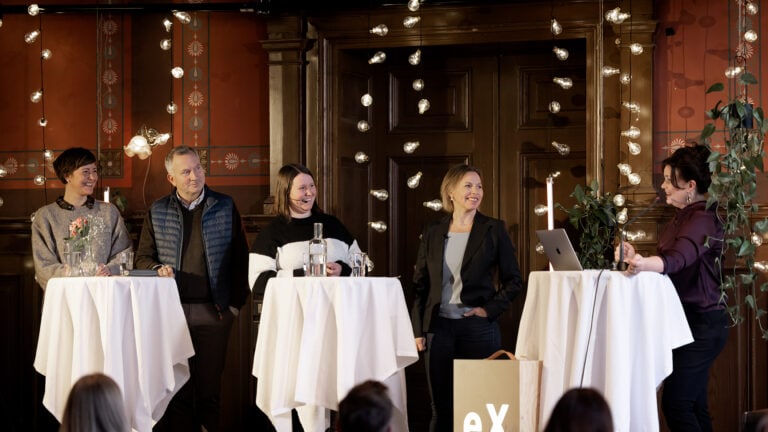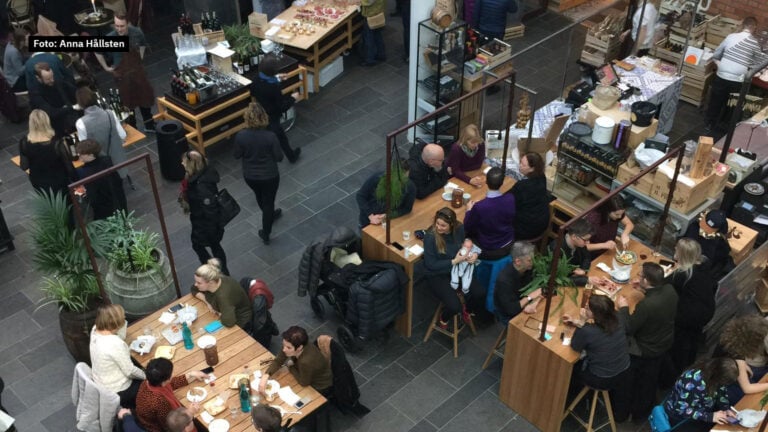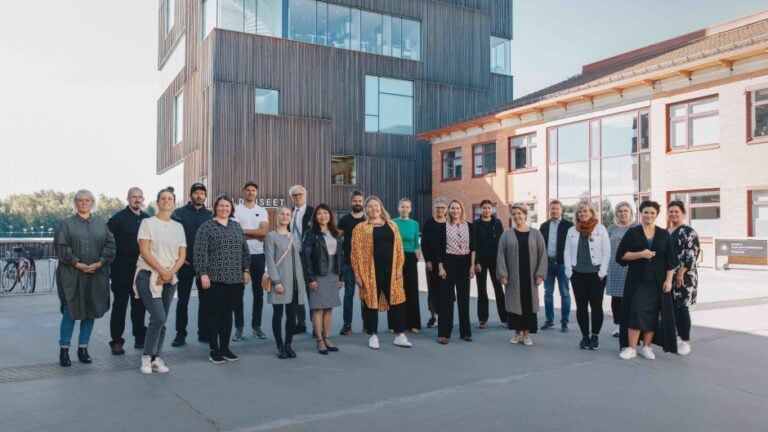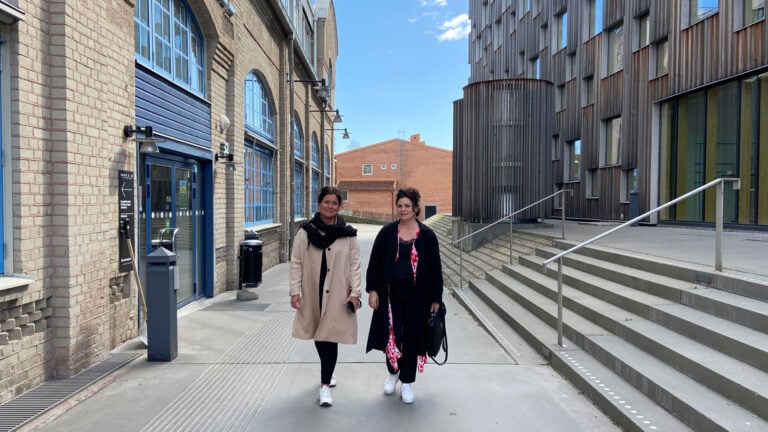Innovation in the retail and hospitality sectors has been strong during the corona pandemic and many companies have now adapted their business models to completely new conditions. One example is Tavelsjö Gårdsmusteri, which has developed Tant Lydias, an unmanned farm shop located in the village of Tavelsjö in Västerbotten's inland region, based on giving customers the confidence to do the shopping themselves.
I am often asked if trust works. Yes! The benefits of trust outweigh the alternative of not offering direct sales," says Marie Baudin.
As the corona pandemic gained momentum and restrictions in the trade, tourism and leisure industries tightened, so did the need to repatriate and explore destinations at home. For Tavelsjö Farm Sampler, the restrictions meant that sales to retailers declined. The need to explore new markets and target groups was thus great, while Marie Baudin did not have sufficient resources to staff a shop aimed at the new target group of home-striders.
During the summer months, the tillits shop has accounted for a considerable part of Tavelsjö Gårdsmusteri's turnover. The investment has also enabled Marie Baudin to further develop her business. The company's first employee will be hired in the autumn.
I realised that I would barely get any orders from retailers while I understood that people would be moving more at home and homesteading. With an unmanned shop, I can keep generous opening hours while using my own time to produce food crafts and run the farm. Our self-service concept has worked very well and enabled us to take the important step of being able to employ people," says Marie Baudin.
The feedback from customers has been great and has ranged from appreciating the confidence of being able to carry out the transaction themselves, to the experience of the special shop environment itself. The shop is an older farmhouse decorated in early 20th century style and visits are described as a welcome nostalgia trip. In the kitchen, the edible products are lined up in the pantry, on the sink and in the kitchen cabinets. Payment is made by the customer using Swish.
Today we provide both our own and other people's food crafts and during the summer we have also expanded with carefully selected household items. We have realised that the old environment and all the furnishings also appeal as a visitor destination and not just as a shop in itself," says Marie.
Trust-based business models are emerging in many parts of the country. In the retail and hospitality sectors, like Marie Baudin's shop, Tant Lydia's, there are small, relatively simple and unmanned stalls that provide what the farm produces, such as eggs, cheese, meat, bread and vegetables. But even in larger chains and in cities, business models are now developing with elements of self-service based on people's trust. The latest example is OKQ8 Västerbotten, which has developed Sweden's first night-open unmanned station at Teg in Umeå. Customers can shop there 24 hours a day and between 21 and 06 the station is unmanned. The shop is monitored by cameras and identification via bank ID is required to visit the shop. The concept was launched in autumn 2021 and has been well received by both customers and employees.
Stefan Ahlbeck, Sales Manager at OKQ8 Teg says:
We are really looking forward to this. I see nothing but benefits and am curious to see what this can generate for our little station. The reaction from customers has been very positive and most of them say this is both awesome and very good. Of course, some want to discuss trust, can we trust the customers? We are of the opinion that we have to believe the best about all people and should a packet of gum go missing, it is almost certainly in the calculation. Our station is a test platform and we see great potential for further development and that the concept can create opportunities in places where there is currently no supply of night shops.

Tavelsjö Gårdsmusteri is currently participating as one of sixteen selected companies in eXpression Umeå's accelerator program Future Retail Lab. The program aims to create growth, develop new business models and forms of collaboration. The accelerator programme contributes to the sharing of experience and knowledge also through the project Future Sustainable Hospitality, led by Annakarin Nyberg and Anna Wikholm Kjellberg and based at eXpression Umeå. The Sustainable Visitor Industry of the Future aims to disseminate and share experiences on business development during the corona pandemic and involves companies and stakeholders in the trade and visitor industry. The sustainable tourism of the future is part of the Swedish Agency for Economic and Regional Growth's Knowledge development in the coronary pandemic and will be implemented during the period 1 February 2021 - 31 December 2022.
eXpression Future Retail Lab is an initiative together with the Swedish Retail Federation via the Swedish Retailers' Association, Umeå municipality and is part-financed by EU structural funds.






